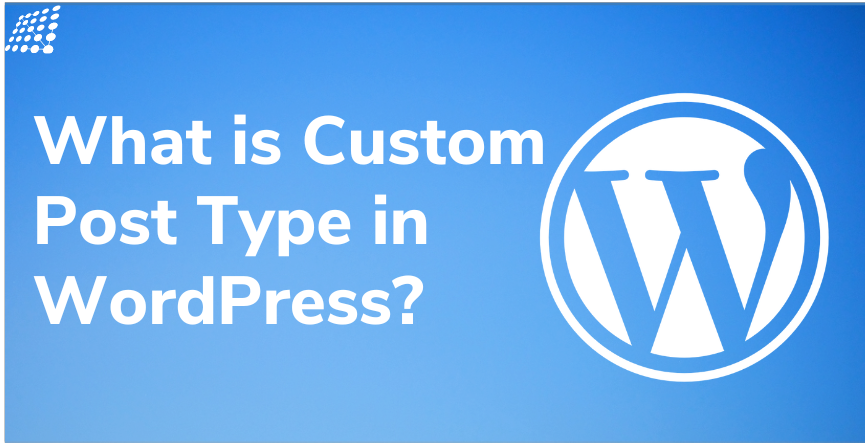Including Custom Posts in WordPress Search Results: A Step-by-Step Guide

It's hardly surprising that WordPress is one of the most widely used content management systems (CMS) available today. After all, it's a tool extraordinaire, seamlessly creating websites, blogs, and e-commerce stores efficiently. How does it do this? Through its user-friendly interface, an extensive selection of plugins, and customization options!
WordPress' search engine, which enables visitors to swiftly and easily find material on a website, is one of its most crucial functions. WordPress search does not, however, by default return results for custom post types. In this blog post, we'll discuss the value of custom posts in WordPress, how WordPress search functions, and how to incorporate custom posts into search results.
In this guide, we'll walk you through the process of how to create custom post types in WordPress step by step. We’ll show you the process of integrating custom post types into your WordPress search results so you can improve the structure and usability of your website. Get set to revamp the way your users engage with your content!
What is Custom Post Type in WordPress?

WordPress is a powerful platform for building websites, and it has a lot of features built-in to make it easy to create custom content types, including custom post types. If you’re wondering what is custom post type in WordPress know that it is a powerful feature that allows you to create new types of content beyond the default "post" and "page" post types. This opens up a wide range of possibilities for creating unique, custom content for your website. For example, you could create a custom post type for products, testimonials, or portfolios.
By creating custom post types, you can store and manage different types of information in an organized manner, which can make it easier to manage your site's content. In addition, custom post types can also be used to create custom templates, taxonomies, and other features that are specific to your use case.
Do you find it difficult to keep your site's content organized and easily accessible for all your users? Well, if you could only find a way to organize and store different kinds of data in a specific way. Well, there is a solution for that, and that solution is creating custom post types in WordPress.
Using custom post types, your site's content can be managed seamlessly, which makes it simpler to explore and discover the information you need. But it goes further than that. To give you even more control over how your content is presented to your audience, you can also develop custom templates and taxonomies tailored to your use case. But what good is all this customization, if your users can't find what they're looking for?
That's exactly where custom post types appear in your WordPress search results. By doing this, you'll ensure that your users have no trouble finding the data they require, which in turn enhances their experience on your website as a whole.
How to Include Custom Post Types in Your WordPress Search Results?
Now, let’s check out how to customize search results page in WordPress and how to include custom post types in your WordPress search results, so that users can easily find the information they are looking for on your site.
Step 1: Register the Custom Post Type
The first step is to make sure that your custom post type is properly registered. You can do this by adding the following code to your theme's functions.php file:
function my_custom_post_type() {
register_post_type('my_custom_post',
array(
'labels' => array(
'name' => __('Custom Posts'),
'singular_name' => __('Custom Post')
),
'public' => true,
'has_archive' => true,
'supports' => array(
'title', 'editor', 'thumbnail', 'custom-fields'
)
));
}
add_action('init', 'my_custom_post_type')
In this example, we are registering a custom post type called "Custom Posts." You can change the name and parameters as needed for your specific use case.
Step 2: Modify the Search Query
Once your custom post type is registered, the next step is to modify the search query so that it includes your custom post type in the results. You can do this by adding the following code to your theme's functions.php file:
function include_custom_post_in_search($query) {
if ($query->is_search) {
$query->set('post_type', array('post', 'page', 'my_custom_post'));
}
return $query;
}
add_filter('pre_get_posts', 'include_custom_post_in_search');
In this example, we are adding the custom post type "Custom Posts" to the array of post types that should be included in the search results. By default, WordPress search results include the "post" and "page" post types.
And that's it! Now, when someone performs a search on your WordPress site, your custom post type will be included in the results. This can be a great way to improve the search functionality of your site and make it easier for your users to find the information they need.
In conclusion, going through the WordPress custom post type search results page is easy. Including custom post types in WordPress search results is a simple process that can have a big impact on the user experience of your website. By following the steps outlined in this guide, you can easily add this functionality to your site and provide a better experience for your users. You can get in touch with our software experts who can assist you with all of your WordPress related issues effectively!

Dark Mode vs. Light Mode: What’s a Better User Experience?

Emerging Mobile App Trends to Watch Out For in 2024!


